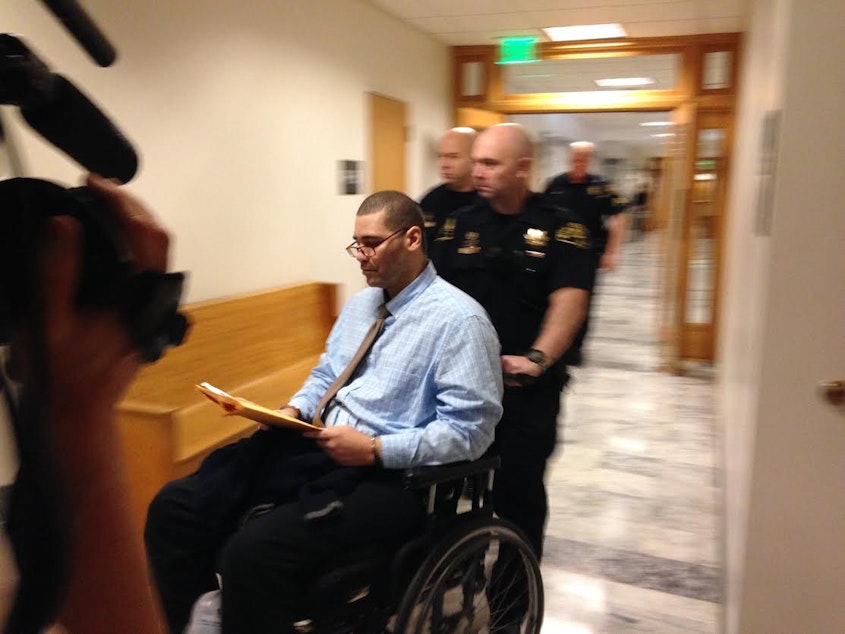Defense: Monfort Was Delusional Over Police Brutality

Opening arguments were heard Tuesday in the trial of Christopher Monfort. He’s accused of killing Seattle Police Officer Timothy Brenton in 2009.
Jurors will have to determine whether they believe Monfort was sane at the time of the shooting.
Monfort was shot and paralyzed during his arrest by police. He uses a wheelchair; court sessions will be shorter than usual to accommodate his medical concerns.
Jurors will spend several months hearing his case in King County Superior Court. Prosecutor John Castleton said he will present DNA evidence and other proof that Monfort is guilty of Brenton’s murder and the attempted murder of other police officers.
Monfort is also accused of an arson attack on police vehicles.
Castleton said he will not only convince jurors of Monfort's guilt, but of his sanity.
“You will also have no doubt that the defendant committed these crimes with full knowledge of what he was doing, fully intending the results that came, and that he prepared long and thought long about all of these crimes,” he told them.
At the arson scene, Castleton said Monfort left a knife plunged into a police car with an American flag hanging from it and flyers criticizing cases of police misconduct.
Monfort’s defense attorneys say Monfort developed a “delusional disorder" and believed his attacks on police were as legitimate as the colonists' rebellion against England in the American Revolution. Monfort's attorneys also said he believed his acts would help address police brutality.
Monfort seems to still be paying attention to the issue as protests against police have occurred across the country. As he was escorted out of the courtroom during a break in opening arguments, Monfort said, "Hands up! Don't shoot" as he passed television cameras, quoting the rallying cry of police protestors.
Defense attorney Todd Gruenhagen said in the days after Brenton’s murder and the ongoing search for his shooter, Monfort was so unhinged that he ranted about police brutality even to strangers, including a doctor in an elevator at the University of Washington.
“Just two people in an elevator, one doctor and one Christopher Monfort. He is described as making good eye contact and then going into a rant on issues of police brutality. Just days after the Brenton homicide,” Gruenhagen said. The doctor in the elevator said Monfort wasn’t threatening, but she still made a quick exit.
Gruenhagen said Monfort’s mental illness did not stop him from planning his crimes in detail.
“You do function with that diagnosis, except when you’re discussing or operating in the area of the subject of the delusion,” he said.
Monfort’s delusion, his lawyers will maintain, was that his actions against police were legitimate and would spark police reform.
Monfort has pleaded not guilty by reason of insanity. If he’s found guilty, jurors will then determine whether he should face the death penalty.

